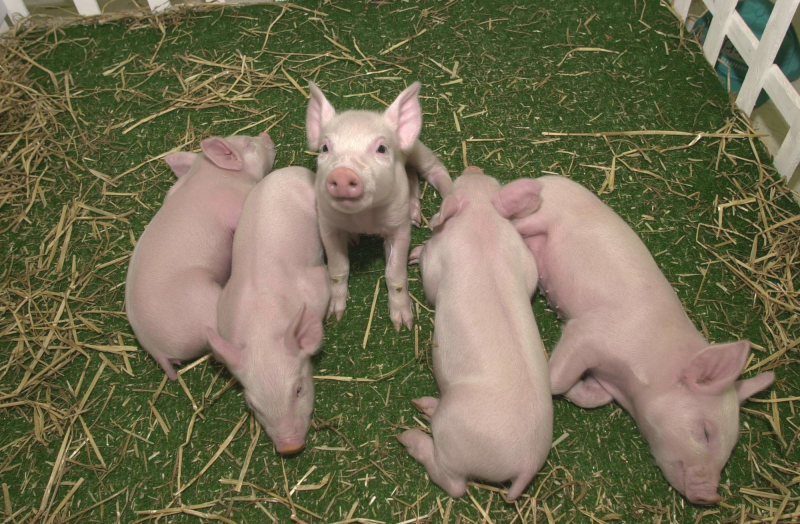Swine of the Times: Pig-to-Human Organ Transplants on Track for 2021
Every day in the US, seventeen people die because they couldn’t get a organ transplant in time. An American biotech company called United Therapeutics is looking to pick up the lifesaving slack by producing a line of genetically-modified pigs for the purpose of harvesting their organs, among other therapeutic uses. United Therapeutics’ pig-farming subsidiary Revivicor is a spin-off of PPL Therapeutics, the company that gave us Dolly the cloned sheep back in 1996. They intend to start transplanting pig organs into humans as early as this year.

Although it sounds like science fiction, the idea of transplanting animal cells, organs, and tissue into humans has been around for over a hundred years. The main problem with xenotransplantation is that it usually triggers severe immune system reactions in the recipient’s body. In one of the more noteworthy cases, a baby girl received a baboon heart in 1984, but died a few weeks later because her body rejected the organ.
The leading cause of xenotransplant rejection is a sugar called alpha-gal. This sugar appears on the cell surfaces of all non-primate mammals. Alpha-gal is problematic for other reasons, too: a condition called alpha-gal syndrome usually begins when a Lone Star tick bites a person and transmits alpha-gal cells from the blood of animals they have bitten. From that point on, the person will experience an allergic reaction when eating red meat such as beef, pork, and lamb.
Pigs with Purpose

Pig heart valves have been used as replacements in humans since the 1960s, but in those cases, the tissue is chemically treated to kill off the cells including the alpha-gal sugar. Presumably, this won’t work for organs like kidneys, hearts, and livers, so they’re starting with the genes.
According to the interview with Future Human, Revivicor’s latest GMO pig has a total of ten modifications that are designed to aid in transplant acceptance. They turned off four pig genes including the one that produces alpha-gal, and added six human genes. One of the added human genes causes the pigs to produce an immune system-moderating protein called CD46.
Bridging the Gap
More people need a kidney than any other organ, so the company plans to start human trials with kidneys and move on to heart transplants in the future. In December 2020, the Food and Drug Administration (FDA) certified these so-called GalSafe pigs as fit for human consumption and therapeutic use. Although Revivicor doesn’t intend to produce GalSafe pigs for an allergy-free alternative for people with alpha-gal syndrome anytime soon, the door is certainly open for other companies to do so.
In 2016, Revivicor and researchers from the National Institutes of Health reported that they had been able to keep pigs’ hearts alive inside baboons for two and a half years. However, these weren’t direct transplant situations — the baboons kept their original hearts and hosted the pigs hearts in their abdomens.
Genetically modified alpha-gal-free pigs could help the organ transplant crisis, though it’s unclear at this point how long the organs will last once transplanted into humans. Revivicor and United Therapeutics hope they can last the rest of a person’s life, or at least long enough until they can get a human organ to replace it. Even if this only ends up being a stopgap until a better alternative arives, it could save many lives. What do you think?
Post a Comment